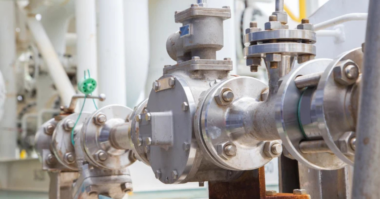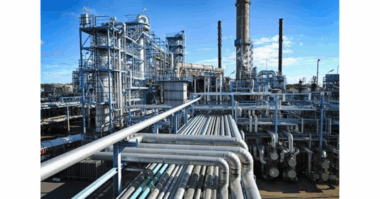Author: Henri Azibert
At one point or another we are all faced with the very puzzling question of which design to use? Do we need a centrifugal pump or a positive displacement pump? What kind of seal will work best? Should we use a globe valve, a gate valve, a quarter turn valve, a rising stem valve? How about the coupling, the motor, a variable speed drive, the base plate and the piping??? So many questions, so many choices! What should the approach be?
When faced with setting up a new pumping system, there often is a myriad of potential approaches.
The very first step is to accurately and completely define the task at hand. For a pumping system, as an example, it will be to get some fluid from point A to point B. Next! Well, that is not quite sufficient.
What is the liquid or gas; are there dissolved solids? Solids in suspension? The properties of the fluid need to be listed: temperature, viscosity, specific gravity, pressure, specific heat, and any other relevant property. Not only do I need to know these properties at point A, but also at point B, and maybe even somewhere else along the way. Doing the homework thoroughly may be tedious, but it will pay off in the end.
The next step might simply be to identify what has been done in the past on similar systems. After all, there is no need to reinvent the wheel. There are, however, some limitations to this approach. What if there is no similar system to refer to? And even if there were a similar system to copy, what is a good solution? Did it provide satisfactory performance? Is there any way to make it better? This will require some research.
Success often depends on how broad the available knowledge base is. The more that is known about these types of systems, the more likely an effective design can be zeroed in on. The realm of research will be quickly narrowed to a few potential candidates and choosing the best one will be a lot easier.
So how best to get this broad-based knowledge? The first thing is not to wait until the question comes up. Always read anything you can find related to what you are doing. Know as much as possible about as many things as possible. Look for solutions to problems you don’t have yet. As an engineer and professional, go to trade shows, take courses online, go to industrial forums, scan trade magazines for articles related to your work. Trade associations are usually a great source of unbiased information. Be relentless in your thirst for knowledge.
It used to be that a trip to the library would be required for an effective and exhaustive research. Nowadays, this has been supplanted by numerous sessions in front of a screen. The internet search can bring up more answers than can be analyzed. And this is where the broad base knowledge and much practice comes in. Quickly dismiss the irrational, the over-optimistic sales presentation. Focus on the technical specifications, compare similar designs to find consensus information. Be skeptical, even cynical, inquisitive, curious, and above all, do not get lost in the details. Consult with colleagues, ask questions, ask for references, ask more questions.
And now, for the rarely used but simplest and most effective approach: ask an expert. Ask someone who has a lot of experience in the field. Good judgement comes with experience, while experience sometimes results from bad judgement. Indeed, what is the sense of making the same mistakes your predecessors might have made when they can be avoided?
When a number of alternatives have been identified, make a list of ‘pros’ and ‘cons’ to alternative designs. Assign values to each relevant variable, and tabulate the results. Cost is always a consideration, but acquisition cost is not the only factor to be considered even if procurement will be relentless about it. A low-cost alternative that fails every year will end up costing way more than the more expensive option that will last for ten years. A long-term perspective is always superior to the short term, expedient solution.
Be daring, but up to a point. Know what is not satisfactory, what is good enough, and most of all, know when to quit. This is what makes the difference between a good engineer and a great one.
Empowering Pumps invites you to post questions you might have in our Industry Forum.




